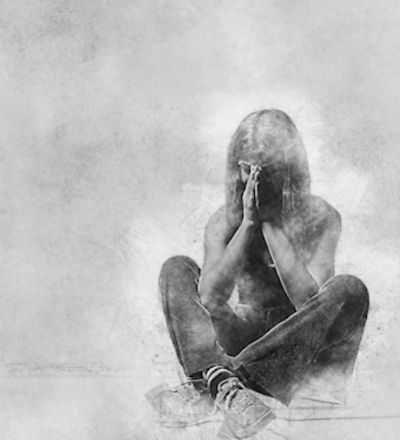Donate
These reports represent hundreds of hours of research by the Unsilenced Investigative Research Team. As you review this report, please consider donating. Your contribution will help us continue our work advocating for survivors and youth. Every donation makes an impact, no matter the size. Thank you for your support!
Completed by:
The Unsilenced Investigative Research Team
The Troubled Teen Industry in Pennsylvania
Impact Report
2022
Impact Report
2022
Introduction
The ‘troubled teen’ industry is a network of residential programs that claim to provide treatment for the behavioral and developmental needs of youth. The industry’s lack of transparency and accountability has led to widespread abuse of youth, resulting in hospitalizations, prolonged trauma and death.
Today, there are an estimated 120,000 – 200,000 minors in residential programs across the United States. These youth are placed each year by state child welfare agencies, juvenile justice courts, mental health providers, refugee resettlement agencies, school districts’ individualized education programs, and by parents.
Many of these youth have trauma histories, which are only exacerbated by being removed from their communities and institutionalized. Youth with lived experience describe these programs as being carceral, harsh, and abusive.
An estimated $23 billion dollars of public funds annually are used to place youth in residential programs. Daily rates for residential treatment ranges from $250-$800, costing up to $292,000 per year, per child.
It is overwhelmingly clear that our communities and agencies are over-relying on residential placements that are negatively impacting the youth they serve.
Introduction
The ‘troubled teen’ industry is a network of residential programs that claim to provide treatment for the behavioral and developmental needs of youth. The industry’s lack of transparency and accountability has led to widespread abuse of youth, resulting in hospitalizations, prolonged trauma and death.
Today, there are an estimated 120,000 – 200,000 minors in residential programs across the United States. These youth are placed each year by state child welfare agencies, juvenile justice courts, mental health providers, refugee resettlement agencies, school districts’ individualized education programs, and by parents.
Many of these youth have trauma histories, which are only exacerbated by being removed from their communities and institutionalized. Youth with lived experience describe these programs as being carceral, harsh, and abusive.
An estimated $23 billion dollars of public funds annually are used to place youth in residential programs. Daily rates for residential treatment ranges from $250-$800, costing up to $292,000 per year, per child.
It is overwhelmingly clear that our communities and agencies are over-relying on residential placements that are negatively impacting the youth they serve.

Pennsylvania Statistics
$415+
Million Dollars
Pennsylvania spent on sending youth to congregate care facilities in 2018
16,056
Children Under 12
placed in residential facilities through Child Welfare programs in 2019
1,566
Juvenile Justice Youth
placed in residential facilities through Juvenile Justice programs in 2019
- 1,197 minors were committed to a residential facility as part of a court ordered disposition
- 354 minors were detained in a residential facility while awaiting a court hearing, adjudication, disposition or placement elsewhere
- 6 minors were voluntarily admitted to a residential facility in lieu of adjudication as part of a diversion agreement

Pennsylvania Statistics
$415+
Million Dollars
Pennsylvania spent on sending youth to congregate care facilities in 2018
16,056
Children Under 12
placed in residential facilities through Child Welfare programs in 2019
1,566
Juvenile Justice Youth
placed in residential facilities through Juvenile Justice programs in 2019
- 1,197 minors were committed to a residential facility as part of a court ordered disposition
- 354 minors were detained in a residential facility while awaiting a court hearing, adjudication, disposition or placement elsewhere
- 6 minors were voluntarily admitted to a residential facility in lieu of adjudication as part of a diversion agreement
A Pennsylvania Problem
A team of researchers reviewed 230 studies of residential treatment facilities from around the nation and found there was no evidence that they were effective.
In 2019, Pennsylvania was home to 2,634,613 minors, including 16,056 minors in foster care.
Pennsylvania has 539 Licensed Residential Facilities with a total capacity for 9,249 minors
The facility types with the highest capacity for housing minors in Pennsylvania are:
- 509 Private Residential Service Organizations with a capacity for 8,137 Minors
- 18 Secure Detention Facilities with a capacity for 732 Minors
- 8 Secure Care Facilities with a capacity for 216 Minors
Residential Facilities in Pennsylvania cost the State and Federal governments millions annually
- Millions in ARPA funds allocated to Pennsylvania will be spent on inpatient and residential behavioral health facilities for recruitment and retention payments to workers
- $6.6 million was spent on ten Erie County hospitals and behavioral health providers alone
- $521,000 was allocated to The Meadows Psychiatric Center in Centre County
- Placements at state-run facilities in Pennsylvania cost an average of $192,720 a year, per youth – nearly 50 times the cost of family therapy

Illustration by Spencer Holladay, USA Today Network; Getty Images
“Many kids don’t get help. Others never needed institutional care in the first place.”
Fred Clasen-Kelly, Amritpal Kaur Sandhu-Longoria, Rachel Berry, Brad Zinn, Kristen Johnson, Brian Gordon
The Fayetteville Observer
Current Oversight
The Pennsylvania Department of Human Services (Office of Children & Youth) licenses 539 Residential Facilities with capacity for 9,247 Minors
- 18 Secure Detention Facilities with capacity for 732 Minors
- 8 Secure Care Facilities with capacity for 216 Minors
- 509 Private Residential Services with capacity for 8,137 Minors
- 3 Outdoor Programs with capacity for 138 Minors
- 1 Mobile Program with capacity for 24 Minors
Abuse and Neglect
Youth residing in Residential Facilities in Pennsylvania are at-risk for abuse, neglect and long-term harm.
Pennsylvania determined that at least 28 Group Home and Residential Facility Staff Members and 18 Foster Parents caused or knowingly allowed the maltreatment of a child in 2020
Following a 16-month review, a task force investigating Pennsylvania’s juvenile justice system and use of residential facilities for youth recommended better oversight
Philadelphia created its own ombudsman office to address abuse and neglect in residential facilities, citing decades of abuse reports at Glen Mills reform school, Devereux Advanced Behavioral Health, and the Wordsworth residential treatment center as proof the State’s oversight was insufficient
An investigation led by The Inquirer found that as many as 41 minors were sexually abused or raped over the last 25 years at Devereux Behavioral Health facilities in Pennsylvania
Media Coverage
- Sep. 24, 2020 ‘Philly removes children from Devereux facilities after sex abuse revelations’ WHYY Ximena Conde
- Jun. 18, 2021 ‘After abuses at residential facilities, Philly to create new youth ombudsperson office’’ WHYY Ryan Briggs
- Jul. 1, 2021 ‘Editorial: It’s time to rethink juvenile justice in Pa.’ USA Today Editorial Board
- Nov. 30, 2021 ‘Troubled’ Mennonite boys were trafficked, forced into physical labor, and abused at a Pa. farm, lawsuit says’ The Philadelphia Inquirer Jaclyn Peiser
- Dec. 7, 2021 ‘Lawsuit Filed Against Devereux Behavioral Health Alleging Years of Sexual Abuse Went Ignored’ Pennsylvania Injury Law News
- Jan. 19, 2022 ’12-year-old reportedly attacked at KidsPeace campus in North Whitehall, cops say’ Lehigh Valley Live Pamela Sroka-Holzmann
- Jan. 20, 2022 ‘State police investigating after 12-year-old girl injured at KidsPeace facility after fight with another juvenile’ 69News
- Jan. 25, 2022 ‘Former group home worker accused of beating patient with autism’ WPXI-TV Gabriella DeLuca
- Jan. 27, 2022 ‘Two Centre County Facilities to Receive Funds from $225 Million Pa. Health Care Worker Legislation’ State College Geoff Rushton
- Jan. 28, 2022 ‘State police: Girl assaults another at KidsPeace facility’ 69News
- Feb. 14, 2022 ‘KidsPeace rebuked for ‘poor’ security amid dozens of 911 calls, records show’ Lehigh Valley Live Sarah Cassi
- Mar. 4, 2022 ‘Police called to KidsPeace facility’ Times News Online
- Mar. 23, 2022 ‘Ten Erie County Hospitals and Care Facilities to Receive Federal Funding’ Erie News Now
- Mar. 24, 2022 ‘Pennsylvania provides more than $200M for healthcare staff recruitment, retention’ Becker’s Hospital Review Kelly Gooch
- Mar. 25, 2022 ‘Western Pennsylvania care home workers accused of abusing residents’ FOX43
- Apr. 9, 2022 ‘Former Church Farms staffer sent to state prison for sex with student’ Daily Local News Michael Rellahan
Additional Information
Unsilenced Program Database: Pennsylvania Programs
Contact: info@unsilenced.org
The information provided within UnSilenced.org is for general informational purposes only. All information is provided in good faith. However, we do not warrant, endorse, guarantee, or assume responsibility for the accuracy or reliability of any information offered by third-party posters, testimonials, comments, or submissions. Most information posted reflects the opinion of the writer and does not directly reflect the views, or positions of the owners of UnSilenced.org
Read More
